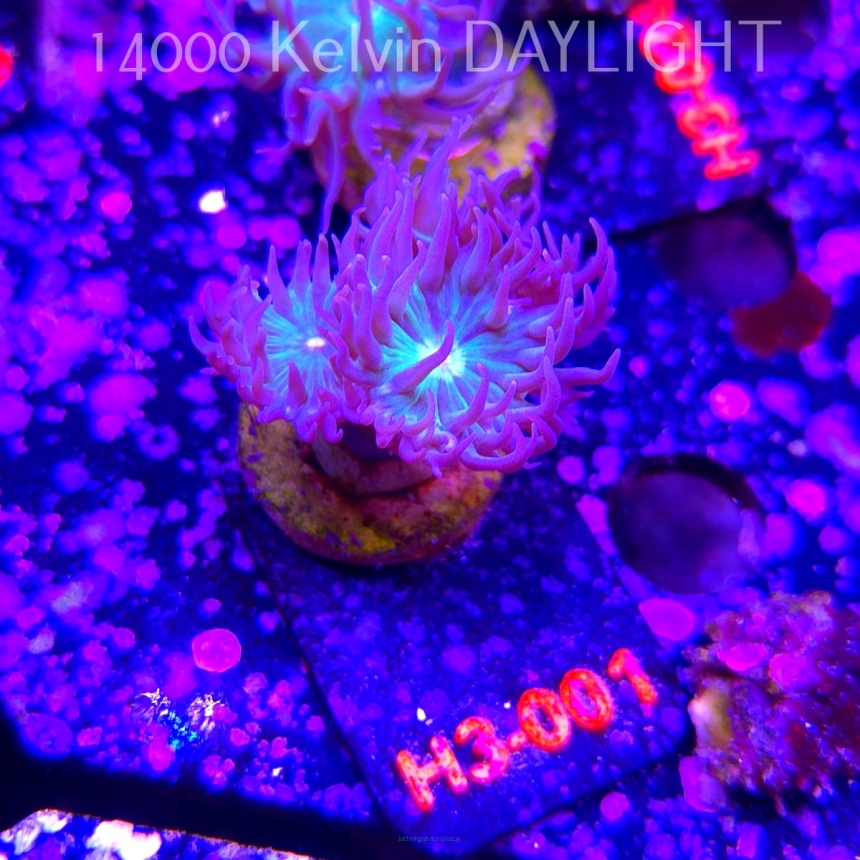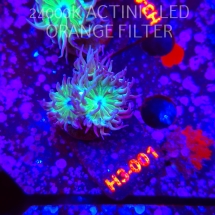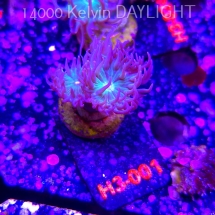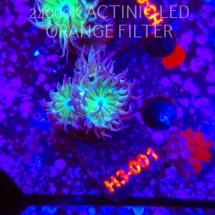



 Exists
(1 szt.)
Exists
(1 szt.)
Duncanopsammia axifuga:
Description:
Duncanopsammia axifuga, also known as "Duncan Coral" or "Whisker Coral," is a species of stony coral belonging to the family Dendrophylliidae.
It takes the form of small branches with long, thin polyps. These corals have the ability to retract their tissues in case of danger.
Cultivation:
Duncanopsammia axifuga is relatively easy to cultivate, making it attractive to many marine aquarium enthusiasts.
Cultivation conditions include moderate lighting and water flow. It is not overly demanding in terms of lighting conditions, making it suitable for a variety of aquarium setups.
The water temperature should be maintained in the range of 24-26°C.
Stable water conditions regarding chemical parameters, such as pH level and salinity, are essential.
Feeding:
Duncanopsammia axifuga is an LPS (Large Polyp Stony) coral, meaning its polyps are larger than those of soft corals.
It can be fed by filtering plankton from the water and providing small pieces of coral food.
Reproduction:
This species can reproduce through crown division. When properly maintained, it can develop new branches and grow.
Notes:
Duncanopsammia axifuga is relatively resistant to various stress factors, making it relatively easy to maintain under proper conditions.
It is advisable to avoid exposing it directly to too intense light, as this can cause color fading.
In summary, Duncanopsammia axifuga is an attractive stony coral species that can be an interesting addition to a marine aquarium with moderate cultivation conditions. However, maintaining a healthy aquarium environment is crucial for the successful cultivation of this species.
Benefits of Buying Corals from Aquarium Cultivation:
Aquarium coral cultivation has become increasingly popular in the world of aquarium enthusiasts for several important reasons. Here are some advantages of purchasing corals from aquarium cultivation:
Protection of Natural Coral Reefs:
One of the primary benefits is that corals cultivated in aquariums are not harvested from wild coral reefs. This means that you are not contributing to the destruction of natural marine ecosystems.
Sustainable Aquaculture:
By buying corals from cultivation, you support sustainable aquaculture, which is more environmentally friendly than harvesting corals from wild reefs. This contributes to the preservation of marine biodiversity.
Greater Availability and Variety:
Aquarium cultivators often offer a wider range of coral species and varieties, allowing aquarium enthusiasts to create more diverse and interesting ecosystems in their tanks.
Healthier and Less Prone to Disease:
Corals from cultivation are typically healthier and less susceptible to diseases compared to those harvested from wild reefs. Aquarium cultivators often conduct regular testing and care for their corals, preventing diseases.
Proper Cultivation Conditions:
Coral cultivators control and maintain stable water conditions, ensuring optimal lighting, water flow, and nutrient levels. This promotes healthy growth and vibrant colors in corals.
Support for Enthusiasts:
Aquarium cultivators often offer support and advice, which can be particularly helpful for novice aquarists. You can gain valuable insights into coral care and cultivation from experienced cultivators.
Safe and Legal Alternative:
When you purchase corals from aquarium cultivation, you avoid potentially illegal trade in wild corals, which can lead to the degradation of natural coral reefs.
Supporting Scientific Innovation:
Aquarium cultivators often engage in research related to coral conservation and reef restoration. By buying from them, you also support these innovative scientific efforts.
Buying corals from aquarium cultivation is a sustainable and ethical way to own beautiful corals in your aquarium. It is also a means of engaging in the protection of marine nature and preserving wild coral reefs for future generations.